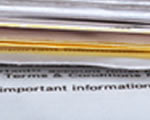 Go to main content
Go to main content
Archive Website of the UK government
Please note that this website has a UK government accesskeys system.
Main menu
Page menu
Money, tax and benefits

War Disablement Pension

You may be able to claim War Disablement Pension under the War Pensions Scheme if you have been injured or disabled as a result of service in Her Majesty's (HM) Armed Forces, you are no longer serving in HM Armed Forces and the claimed condition was caused by service before 6 April 2005.
Who is eligible?
You may be able to get War Disablement Pension if you were injured or disabled through serving in HM Armed Forces, including the:
- Ulster Defence Regiment (now known as the Royal Irish Regiment)
- Home Guard
- nursing and auxiliary services
or
you can claim if you were injured or disabled while serving as a civil defence volunteer (CDV) or as part of the MN, naval auxiliary or coastguard and you were injured or disabled because:
- of conditions during a war
- you were a prisoner-of-war
or
during the Second World War, you were:
- a civilian injured or disabled as a result of enemy action
- a member of the Polish Forces under British Command (or you were in the Polish Resettlement Forces) and were injured or disabled in service
Who isn't eligible?
Where disablement was caused by Service in HM Armed Forces on or after 6 April 2005, claims should be made under the Armed Forces Compensation Scheme.
You can't claim a War Disablement Pension if you're still serving in HM Armed Forces.
If you're still serving, you may be able to get financial help from the Armed Forces Compensation Scheme.
How much do you get?
The amount you're paid depends on the extent of your disablement.
You'll be asked to complete a claim form about your disablement before The Veterans Agency checks your service records. The degree of your disability will then be decided by Veterans Agency medical advisers who see your medical records.
Your assessment is worked out as a percentage.
If the percentage is one of the following:
- more than 20 per cent - you'll get a pension
- less than 20 per cent - you'll usually get a lump sum (or gratuity)
The gratuity amount depends on the extent of your disablement and how long you're likely to be disabled. But, if your condition is noise-induced sensorineural hearing loss assessed at less than 20 per cent, you won't get a gratuity.
War Disablement Pensions can also be topped up with allowances. For example, your age, care and mobility needs, or loss of earnings may affect the amount you get.
How it's paid
War Disablement Pension is paid directly into your bank, building society, Post Office® or National Savings account.
If you're registered blind or need someone who cares for you to collect your money, a cheque can be sent to cash at the Post Office®.
Effect on other benefits
Other benefits you might get, like Employment and Support Allowance, Incapacity Benefit, Disabled Living Allowance or Income Support, can affect the amount of War Disablement Pension you're entitled to.
For more information about which benefits may be affected you can ask your local Jobcentre Plus office.
How to claim
You can contact the Veterans Agency to get a claim form and help completing it:
Telephone 0800 169 2277
Textphone 0800 169 3458
Lines are open 8.15 am to 5.15 pm Monday to Thursday, and 8.15 am to 4.30 pm on Fridays.
You can also get a form from your nearest War Pensioners' Welfare Service Office. You'll find them in the local phone book under 'Veterans Agency'.
Or you can download a claim form from the Veterans Agency website.
How to appeal
If you disagree with the Veterans Agency's decision to refuse your claim for War Disablement Pension, you can ask them for an explanation and to re-assess your claim.
If you're still unhappy, they'll tell you how to make an appeal.
Free help with appeals
You can get free help with an appeal by contacting the:
- Royal British Legion
- Royal British Legion Scotland
- Royal Air Forces Association
More useful links
In this section...
- Incapacity Benefit
- Statutory Sick Pay
- Industrial Injuries Disablement Benefit (accidents)
- Industrial Injuries Disablement Benefit (diseases and deafness)
- Community Care Grants
- Healthcare travel costs scheme
- Medical costs for war pensioners
- War Disablement Pension
- Health costs
- Vaccine Damage Payment
- Severe Disablement Allowance
 Facebook
Facebook Twitter
Twitter StumbleUpon
StumbleUpon Delicious
Delicious Reddit
Reddit